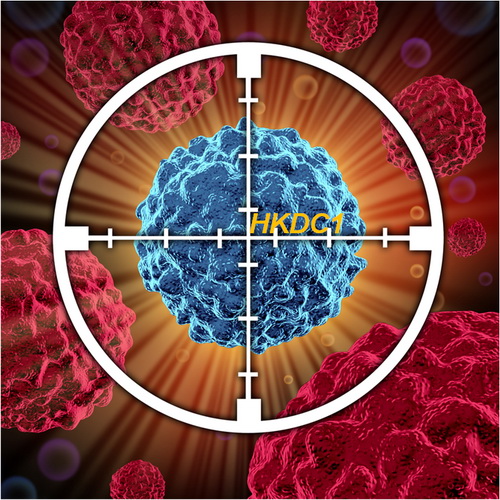Cancer is the leading causes of death worldwide, accounting for over 8 million deaths each year. In addition to the traditional methods such as radiotherapy and chemotherapy, targeted therapy is a hot research and development trend of clinical oncology. Targeted therapy is a type of medication that blocks the growth of cancer cells by interfering with the therapeutic target needed for tumor growth. It is expected to be more effective than current treatments, but with less side effects. Therefore, the discovery of therapeutic targets for cancer is the basis and key for targeted therapy. Prof. HUANG Jingfei (Kunming Institute of Zoology, CAS) and his colleague (Dr. LI Gonghua) developed a novel system biology model for inferring therapeutic targets for cancer. They predicted 50 candidate targets for lung cancer, of which 19 of the top 20 genes are targeted by approved drugs or drugs used in clinical trials. A hexokinase family member, hexokinase domain-containing protein 1 (HKDC1), is the only one of the top 20 genes that has not been targeted by either an approved drug or one being used in clinical trials. Further investigations of biological and pharmaceutical data indicate that HKDC1 is a novel potential therapeutic target for lung cancer. Since HKDC1 was not expressed in normal cells and highly expressed in lung cancer cells, targeting HKDC1 may be safer than targeting EGFR and other known therapeutic targets. This work has been published on Bioinformatics (http://bioinformatics.oxfordjournals.org/content/30/6/748), and was supported by the National Basic Research Program of China, and the National Natural Science Foundation of China. 
(By Gong-Hua Li) |
